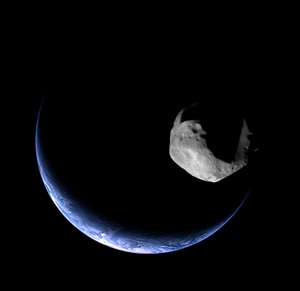Create a free profile to get unlimited access to exclusive videos, sweepstakes, and more!
How to—Literally—Help Save the World from Asteroid Impacts

The B612 Foundation is a group of scientists, engineers, and astronauts who want to literally save the world⦠from asteroid impacts.
They know the first step in doing so is to build a telescope that can spot space rocks, map their orbits, and compile a list of potential Earth-whackers. Their Sentinel mission will do just that: It will circle the Sun near the orbit of Venus, surveying the sky to look for potentially threatening rocks (it will actually do some of its best prospecting right after launch, while itâs still near Earth). The mission is ambitious, and funded through private donations.
Thatâs where you come in. B612 is using various methods to raise the funds, including auctioning some pretty cool items: medallions, pins, and patches, some of which have flown in space! My favorite is a small flag that orbited the Earth for ten days in 1969 on the Apollo 9 mission with astronaut (and B612 scientist) Rusty Schweickart.
Iâm a big supporter of B612 (along with a proposed complementary NASA mission called NEOCAM). I think this is so important that when B612 asked me to make a short video for them about it, I happily and immediately agreed:
They also have an introductory video by my friend, astronaut Ed Lu, who is the Chairman and CEO of B612.
Statistically speaking, asteroid impacts present a fairly small danger in the short term (like, in the next few decades), but over enough time the odds go up to certainty that one big enough to do serious damage will occur. Because we havenât mapped all the near-Earth asteroids, we simply canât know when the next impact will be. Yet. The lesson of Chelyabinsk is that even small rocks can be a threat, and we need to keep an eye on the sky for them.
Missions like Sentinel and NEOCAM will yield a treasure trove of information about hazardous asteroids, giving us not just their orbits and potential impact risks, but also scientifically valuable information about them as well. Asteroids are fascinating, many of them as old as the solar system itself, and can tell us a lot about our astronomical history. Some are also literal treasure troves, filled with materials astronauts on future missions can use to survive; water, air, and other supplies can be generated from this raw matter.
These rocks are one of the biggest ironies of the solar system: If we do nothing about them, they can destroy us, but if we take action, soon, they can open up the exploration of space and possibly provide substantial wealth in the process. Itâs a win-win situation, and all we have to do is get moving. B612 is a solid step in that direction.


























